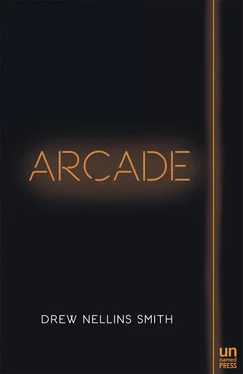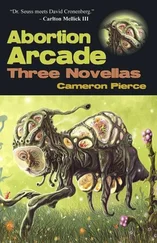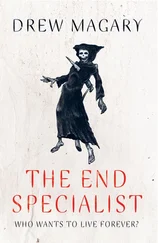I vacationed with wealthy relatives who grew angry after hearing me say on more than one occasion that I couldn’t afford something.
“Stop saying that!” my aunt finally snapped.
“What should I say when I can’t afford something?” I said.
“Say, ‘I prefer not to spend my money that way.’” She was literally holding a silver spoon in her hand as she spoke, poised over a bowl of lobster bisque.
They were footing the bill for the trip, and were generous and lovely people, so I left it at that, but I spent months thinking about her suggestion whenever my dire financial situation arose in my mind.
A vacation home? I prefer not to spend my money that way.
A new laptop? I prefer not to spend my money that way.
A pair of running shoes? I prefer not to spend my money that way.
Dinner at Whataburger? I prefer not to spend my money that way.
A Bartleby for the age of consumption.
I never judged the clerks at the arcade, even if they did judge me. I understood implicitly that they were not just guys working at a sex arcade. They were men with jobs who wished to be doing something else with their lives, or who were actively doing things with their lives that the job at the arcade made possible, even if their ambitions were as simple as feeding themselves and enjoying, as much as they could, their brief existences on the planet.
IN MY OWN CAREER AS A CLERK, I FLATTERED MYSELF THATI had a particular skill for reading people. Like the Fifty States puzzle I had as a kid, it was as simple as slipping them into the right slots, the appropriate cliché categories and tidy archetypes. I’d read that there were only seven basic plots that all works of fiction could be divided into. It seemed like bullshit, but the longer I worked at the motel the more it seemed true of people themselves. Maybe there weren’t even seven different types.
On my worst days, it was as if I had a compulsion to develop opinions about people and then to subtly let on what they were. When I liked someone, I was straightforward, complimentary, and open. When I didn’t like them, I joked dryly. I’d describe someplace I felt they should visit while they were in town, then hint at how much I detested the place and its denizens. Or if they were arriving to join a big group, all of the members of which seemed to me to be essentially the same, I would say, before they could tell me, “I bet you’re with the people in rooms 140 and 141.” Though I was always right, I could see their frustration at being perceived in a way that was counter to the way they thought of themselves, as members of a group rather than as individuals. But given the way I went about it, it would have seemed silly for them to defend themselves openly. They would have looked sensitive and paranoid.
I’d like to think it wasn’t ever anything devastating or even memorable. Just a bit of discomfort quickly forgotten, a minute of bad customer service. But even after I stopped, I still searched for a way to place myself on the same level as everyone else from behind the front desk. I was always surprised at the nakedness of people’s feelings towards perceived underlings, and I was equally surprised by how much it got to me. At least five percent of the customers appeared not to think of me as an actual human being. Five percent doesn’t sound like much — I guess I should have been grateful for the ninety-five percent — but it could feel like a lot, particularly since I worked at a budget motel at which many of our customers weren’t much better off than I was. I could only imagine how much worse it would have been at one of the nearby boutique hotels or the great towers of wealth where Malcolm was trying to whip into shape a workforce made up of people wearing actual suits and ties.
One of the great gifts of the arcade was the way it put us all on the same level. Of course I could tell which men were rich or poor or middle class, but it didn’t matter out there. After the three-dollar threshold, we were all the same. I went to the arcade when I was flush with cash, and at other times when I was so hard up for money I debated whether or not I could really drop a fiver on the venture. It didn’t change anything. It didn’t change my luck. It was the first and only level playing field I’d ever been on. I liked the idea that most of us never would have met or interacted if it hadn’t been for that place, divided as we were by our jobs and incomes.
I DROVE TO THE COP’S HOUSE ALMOST AN HOUR AWAY. I didn’t know what would happen once I got there. I wanted to look at it, to see the exact brick house inside of which he lived, even though it was identical to any number of brick houses, not just in his neighborhood or mine, but in the United States and the world. I didn’t know why I was going there, and I tried not to think about it.
As I drove, I played the same two maudlin albums of bad radio music I listened to ceaselessly during that period, albums which had come out that very year and which seemed to capture my feelings so precisely that I had the standard, ludicrous notion that if only the cop could hear the songs on those records he might reach a state of empathy and comprehension of my position so complete that he would return my love.
I could imagine a fantasy in which I took a portable stereo to his house. I could imagine his impatience as I insisted that he would understand everything perfectly if he would just listen. I could imagine loading the tracks and watching his arms slowly uncross as the songs played. I could imagine invisible lightning bolts of mutual understanding traveling between us. Sometimes I thought the scene played better in a car, but then I’d have to pull over in order for us to embrace.
The first time I drove to meet him I told myself that at any moment I could exit the highway and turn my pickup around, to return to my apartment and my normal life where I would be a straight person who didn’t fool around with men ever, under any circumstances, no matter what. When I arrived, he answered the door, and I remembered learning about the receptors in our brains designed especially for molecules that fit perfectly into them, no matter how complex and odd their shapes.
After that first visit, I played particular albums on the way to meet him with the intent of using classical conditioning to mark the experience by the sound. Then I could have the same feeling by playing the songs later, the way people who have traumatic experiences at great heights can become phobic about skyscrapers. Driving out there, I felt good and excited and eager. I also felt a little preemptively sad, because I could already see that it would soon be over. Whenever I saw a pickup like mine going in the opposite direction I imagined I was seeing a future version of myself heading home an hour or so hence. The landmarks along the way were like friends cheering me on, telling me I was that much closer to the house of the cop, where I never once thought about killing myself. I kept looking at my phone, always afraid it would ring and somehow interrupt me and ruin everything.
When the cop saw me getting out of bed over and over again to check my phone, he started frisking me when I came inside and making me leave it in my pickup, parked at the curb in front of his house. He got out a legal pad and we sat down at his kitchen table together to make a list of excuses I could use if I returned to the cab of my truck and found that I had missed calls.
First, we made a list of the people most likely to call and ask, “Where were you?” or “Why didn’t you pick up?” Then we mapped out a list of people those people didn’t know, but who I also knew. That was excuse number one. “I was on the phone with X. S/he’s having a rough time because of some personal stuff.” Since they didn’t know one another but did know of one another, they’d never have an opportunity to test the alibi.
Читать дальше












